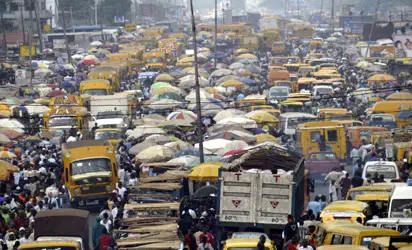By: Chioma Madonna Ndukwu
The World Bank has warned that poverty levels in Nigeria are expected to rise by 3.6 percentage points by 2027.
This forecast is part of the Bank’s Africa’s Pulse report, presented during the ongoing Spring Meetings of the International Monetary Fund (IMF) and the World Bank in Washington, D.C.
The report paints a concerning picture for Nigeria, highlighting that despite some economic growth, particularly in the non-oil sector in late 2024, deeper structural issues, such as heavy reliance on natural resources and national instability, are likely to hinder any meaningful reduction in poverty.
According to the World Bank, “Poverty in resource-rich, fragile countries, including large economies like Nigeria and the Democratic Republic of Congo—is projected to increase by 3.6 percentage points between 2022 and 2027.”
The report stresses that while Sub-Saharan Africa remains the global hotspot for extreme poverty, with 80% of the world’s 695 million extremely poor people living in the region, countries like Nigeria are facing unique challenges.
It adds, “This follows a well-established pattern whereby resource wealth combined with fragility or conflict is associated with the highest poverty rates, averaging 46% in 2024, which is 13 percentage points higher than in non-fragile, resource-rich countries.”
In comparison, non-resource-rich countries are projected to experience faster poverty reduction due to factors like high agricultural commodity prices, which are contributing to stronger growth despite fiscal pressures.
The report also draws attention to the widening disparity within the region, revealing that “half of the 560 million extreme poor in Sub-Saharan Africa live in just four countries.”
Nigeria is among these nations, facing a stark poverty outlook over the next several years.
To address this, the World Bank has called on Nigeria and similar countries to focus on improving fiscal management.
The report emphasizes the need for “a stronger fiscal contract with citizens” to ensure inclusive economic development and long-term poverty alleviation.


